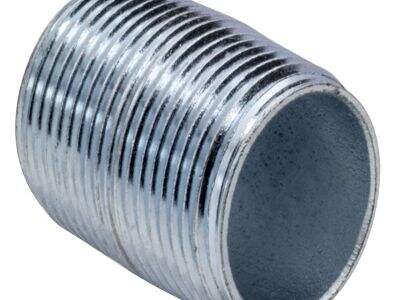Nickel is a shiny, silver metal that we can find in many common products. You don’t even know how much we use nickel! It's in coins, batteries and even some kinds of jewelry. An interesting fact about nickel is that it can be combined with other metals to make special mixtures known as nickel alloys. These nickel alloys are extremely high-strength and used in a wide variety of applications across diverse industries. Discover more about nickel alloys and their contribution to our world.
What Are Nickel Alloys?
Nickel alloys are formed by combining nickel with various other metals including copper, iron, or chromium. When these metals interact, the new material that results has special properties. Nickel alloys are really strong materials that do not break so easily. They are also resistant to rusting, which is a key factor as rust can destroy metals over periods of time. Nickel alloys also have a high heat tolerance which makes them suitable for use in planes, automobiles and electronics.
How Are Nickel Alloys Used?
Nickel alloys possess unique properties that make them essential to many industrial applications. As an instance, nickel alloys are used in many parts made for planes and spacecraft in the airplane industry. During flight, these components must perform at extreme temperatures and in harsh environments. Nickel alloys, for example, are found in car engines and exhaust systems, where they enable them to last longer and work more efficiently. Nickel alloys help cars run longer without repair. Nickel alloys are also employed in batteries and electrical components in the electronics sector. They are good conductors — meaning they allow electricity to freely flow through them — and they also never rust, and this keeps our electronic devices functional.
Talbot’s Guide to Nickel Alloys: Different Uses
Nickel alloys provide many specialty applications due to their unique properties. Nickel alloys are used to manufacture surgical instruments and implants such as a hip replacement in medicine. The reason is that they are safe for the body, they do not react with our tissues. In the marine industry, boats, ships, and submarines have parts made of nickel alloys. These components must be resistant to rust caused by seawater — which is something nickel alloys can provide. Nickel alloys, for instance, are used in the chemical industry in factories and processing plants; they can withstand high temperatures and strong chemicals that would otherwise damage other types of metals.
Nickel Alloys Explained — Different Types
Different types of nickel alloys exist, and each type has different qualities that are suited for certain applications. For instance, Monel is a nickel alloy that is rust-resistant, and is frequently used for marine applications. This means that it is ideal for creating pieces that are always submerged in water. Inconel is another type of nickel alloy that also can withstand very high temperatures. It is frequently used in the aerospace industry and at chemical processing plants where heat is a consideration. Hastelloy is a special nickel alloy that can resist rust by many chemicals. As a result, it is widely used in the chemical industry to maintain the safety and functional efficiency of equipment.
What Nickel Alloys Do for Technology Today
Nickel alloys are some of the most essential enablers of current technology and innovation in our world. Without nickel alloys, many of the everyday products we can’t live without wouldn’t work so well. Nickel alloys are found everywhere — from planes we fly in to cars we drive and the devices we use such as smartphones and laptops. They make things stronger, longer-lasting and better-performing, permitting us to continue stretching the limits of technology.
To sum it up, nickel alloys are a cool substance that really makes our world go round. Nickel alloys are an indispensable building block for numerous industries and technologies in many aspects ranging from their specific properties to their broad applications. So why does this matter? Well as we move forward with nickel alloys expect to see more amazing things that will affect the way we live and work in the future.


